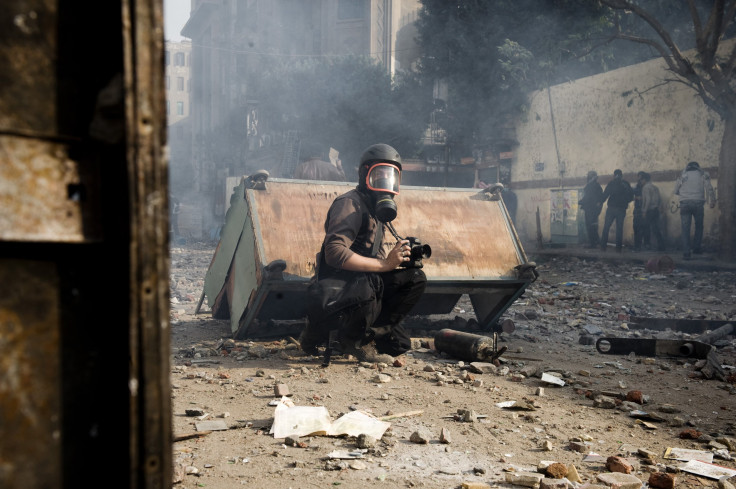New York Times Op-Ed Slams Pentagon Guidelines On War Reporting

The Pentagon’s new guidelines for reporting on warfare and conflicts have come under fire from the New York Times, which, in an editorial, criticized the regulations for treating journalists like spies.
The paper’s editorial board warned on Monday that the guidelines for war journalists would “make their work more dangerous, cumbersome and subject to censorship,” and called for them to be repealed immediately. The Pentagon’s new guidelines state that, in some instances, war correspondents could be treated as “unprivileged belligerents,” the same category it uses for members of militant groups like al Qaeda.
The 1,176-page document from the Department of Defense, released in June, states that in certain cases, “the relaying of information (such as providing information of immediate use in combat operations) could constitute taking a direct part in hostilities.”
The manual also directly compares journalists to spies, warning that “reporting on military operations can be very similar to collecting intelligence or even spying,” and advising governments that they “may need to censor journalists’ work or take other security measures so that journalists do not reveal sensitive information to the enemy.
"A journalist who acts as a spy may be subject to security measures and punished if captured. To avoid being mistaken for spies, journalists should act openly and with the permission of relevant authorities," the manual adds.
The Times op-ed warned that the document could severely harm press freedom across the world, and damage America’s standing abroad. “Authoritarian leaders around the world could point to it to show that their despotic treatment of journalists — including Americans — is broadly in line with the standards set by the United States government,” the editorial said.
An unnamed senior Pentagon official, speaking to the Times, reportedly cited the assassination of Afghan military commander Ahmad Shah Massoud as an example of journalists being “unprivileged belligerents.”
The editorial, however, called this claim “preposterous” as Massoud was killed by assassins who smuggled explosives inside their camera. “They were not, in fact, journalists,” the op-ed said.
Pentagon spokesman Lt. Col. Joe Sowers said that the manual is "not an authorization for any person to take any particular action related to journalists or anyone else," Agence France-Presse reported. "It is not policy and the manual is not directive in nature.”
The editorial drew comparisons to earlier guidelines, such as a 2012 guidebook released by the United States Army Judge Advocate General’s Legal Center and School, which called for journalists to be protected as civilians “provided they take no action adversely affecting their status as civilians.”
The Committee to Protect Journalists had earlier condemned the DoD guidelines, warning that they would have a significant negative impact at a time when the trade is at its most dangerous in years. The year 2014 was an especially dangerous year for journalists, counting at least 60 dead journalists worldwide, a quarter of whom were international reporters, according to the CPJ.
"At a time when international leadership on human rights and press freedom is most needed, the Pentagon has produced a self-serving document that is unfortunately helping to lower the bar," the group said, in late July.
Press watchdog Reporters Without Borders warned in February of a “decline on all fronts” of press freedom, including media independence, the safety of journalists, and the legislative and institutional environment in which reporters operate. In its 2015 ranking, the United States came forty-ninth out of 180 countries ranked for press freedom.
© Copyright IBTimes 2025. All rights reserved.



















